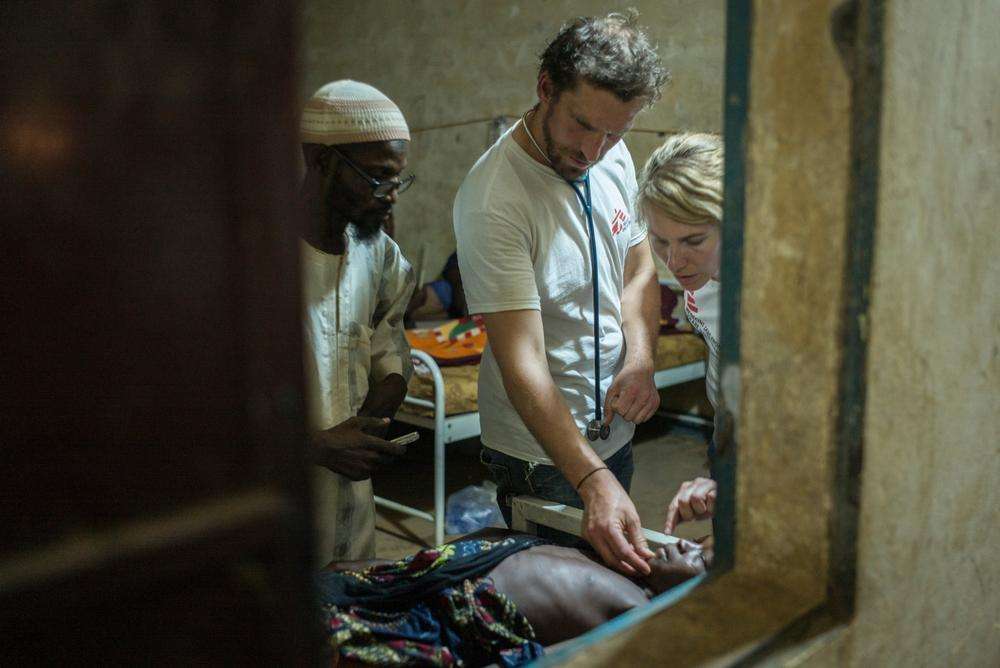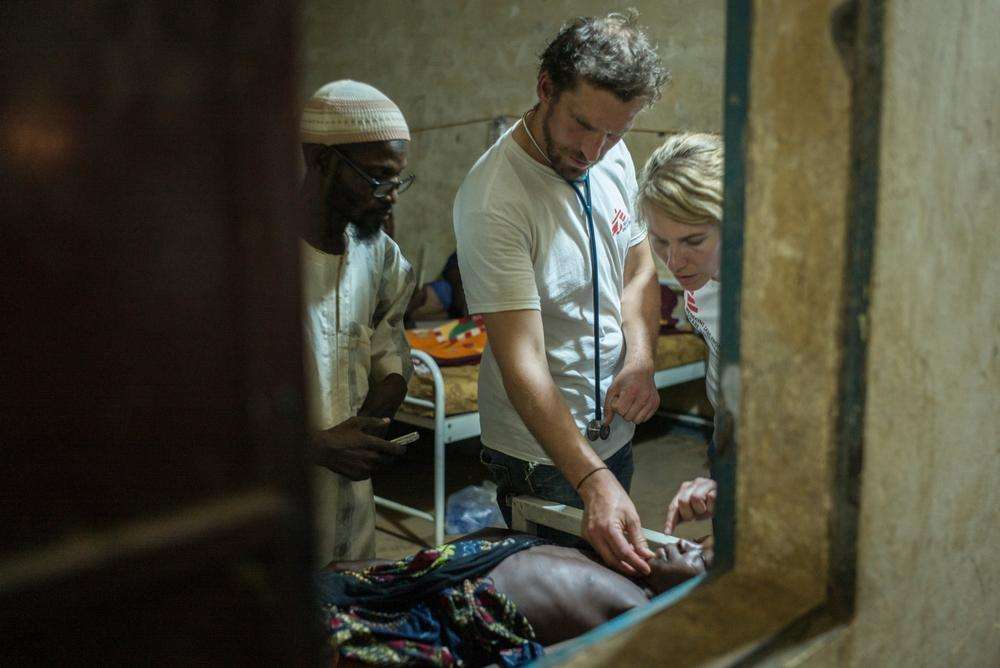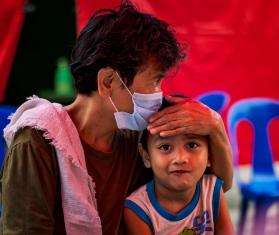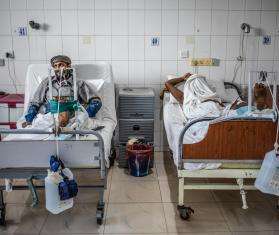A meningitis epidemic has been spreading across Niger since January, affecting 5,273 people and killing 352.[1] The epidemic has hit the capital, Niamey, particularly hard; nearly 1,200 people have been admitted to hospital in the last week alone.
Doctors Without Borders/Médecins Sans Frontières (MSF) is working in collaboration with Niger’s Ministry of Health to provide almost 430 beds and free medical care for patients.
"The situation is worrying because meningitis can kill 50 percent of those infected and leave neurological sequelae if it is not quickly treated," says Dr. Louis Kakudji Mutokhe, MSF medical coordinator in Niger. "In urban areas, overcrowding can increase the risk of disease spread.”
A Different Kind of Epidemic
Meningitis is the inflammation of the membranes covering the brain and the spinal cord.It is usually caused by an infection and often manifests in the form of headaches, a high fever, nausea, vomiting, sensitivity to light, and a stiff neck. Without emergency care, death can occur within hours of the onset of symptoms.
Niger, located in what is commonly referred to as “the meningitis belt,” frequently deals with outbreaks of the disease. However, this epidemic is particularly dangerous, since it is caused by multiple strains of meningitis—W135 and C strains—that are not common in the region.
“The W135 and C strains are particularly deadly among young adults and children, as the population in this region is only immunized against the A strain following a major vaccination campaign conducted in 2010,” says Dr. Mutokhe. This is the first time that epidemics of meningitis W135 and C have occurred on this scale in Niger.
Given the lack of vaccines available globally, the current priority is to focus on treating patients. Medical teams diagnose and treat patients as soon as possible in order to slow the spread of the disease and reduce mortality.
MSF has deployed medical teams to the Lazaret health center, where over 3,000 patients have been admitted since March 23. MSF will also support health centers around Niamey, treating simple cases and referring more severe cases.
Epidemic in Dosso and Tillabery Region
In Dosso region, MSF teams are traveling to health centers in various villages to examine patients, collect medical data, and provide medication to treat the disease. “Families are aware of how dangerous the disease is, but feel powerless against an epidemic which continues to spread,” says Julien Matter, MSF head of mission in Niger. “This meningitis epidemic could affect fragile health structures that are often unable to bear the financial costs of treatment.”
In collaboration with the Ministry of Health, MSF has also deployed teams to vaccinate approximately 32,000 people in Bakin Tapki, Rouda Goumandey, and Maikalgo.
“It is unacceptable that people continue to die from a preventable disease,” says Matter.
In Niger, MSF supports outpatient nutrition programs for children under five years of age in the Zinder, Maradi, and Tahoua regions. Children suffering from severe malnutrition who require constant monitoring are admitted to hospital nutrition centers in Zinder, Magaria, Madarounfa, Guidan Roumdji, Madoua, and Bouza. In 2014, over 87,000 children suffering from acute malnutrition and 180,000 with malaria were treated in health centers managed by MSF and its partners.
[1] Data reported by health authorities as of May 8, 2015.





